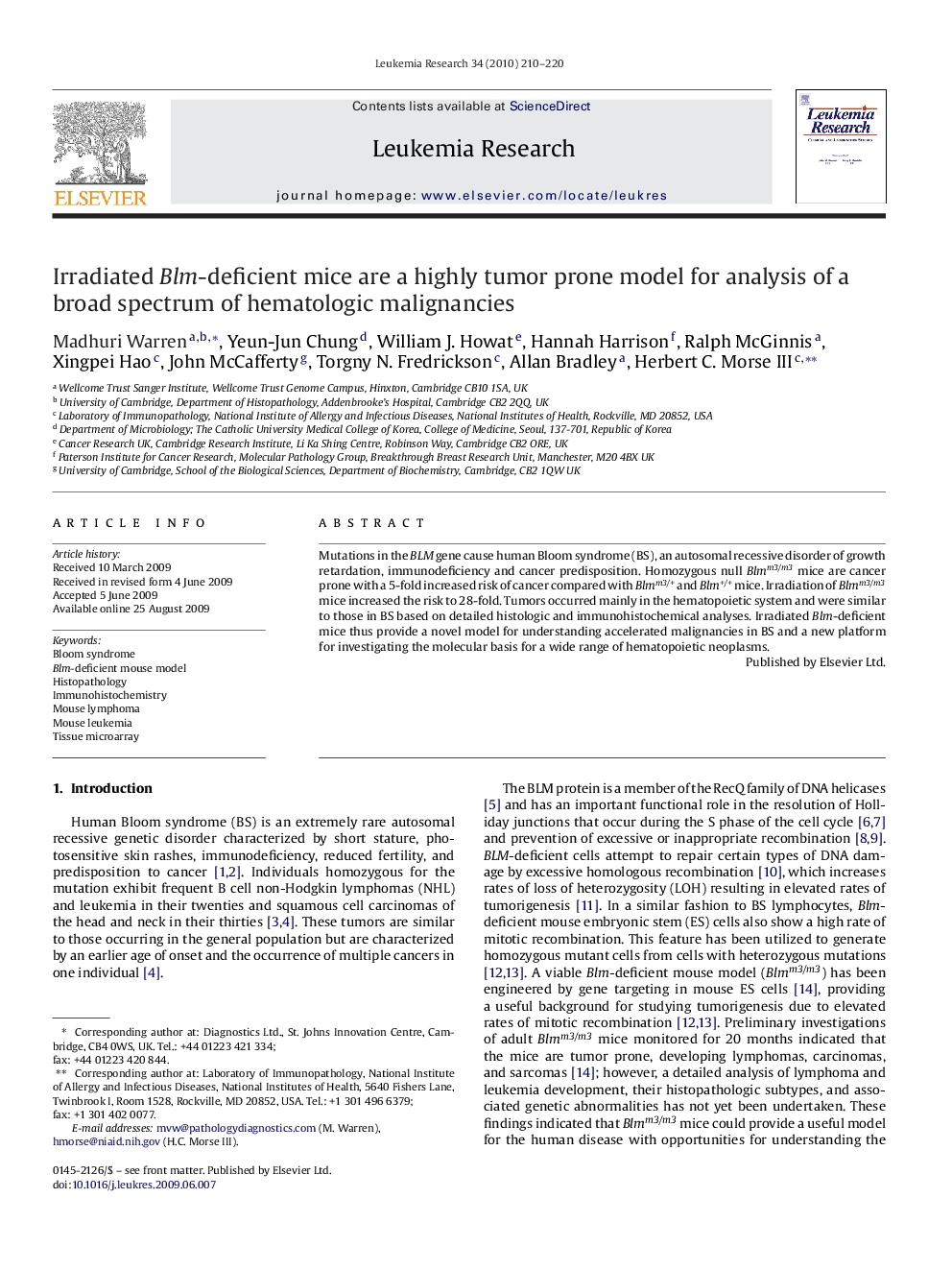| Article ID | Journal | Published Year | Pages | File Type |
|---|---|---|---|---|
| 2137695 | Leukemia Research | 2010 | 11 Pages |
Abstract
Mutations in the BLM gene cause human Bloom syndrome (BS), an autosomal recessive disorder of growth retardation, immunodeficiency and cancer predisposition. Homozygous null Blmm3/m3 mice are cancer prone with a 5-fold increased risk of cancer compared with Blmm3/+ and Blm+/+ mice. Irradiation of Blmm3/m3 mice increased the risk to 28-fold. Tumors occurred mainly in the hematopoietic system and were similar to those in BS based on detailed histologic and immunohistochemical analyses. Irradiated Blm-deficient mice thus provide a novel model for understanding accelerated malignancies in BS and a new platform for investigating the molecular basis for a wide range of hematopoietic neoplasms.
Related Topics
Life Sciences
Biochemistry, Genetics and Molecular Biology
Cancer Research
Authors
Madhuri Warren, Yeun-Jun Chung, William J. Howat, Hannah Harrison, Ralph McGinnis, Xingpei Hao, John McCafferty, Torgny N. Fredrickson, Allan Bradley, Herbert C. Morse III,
